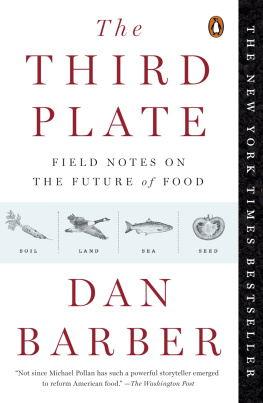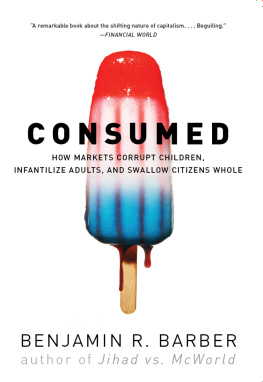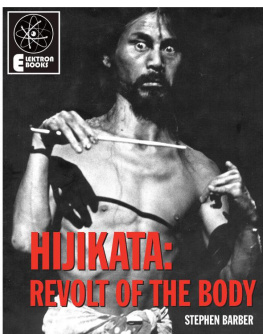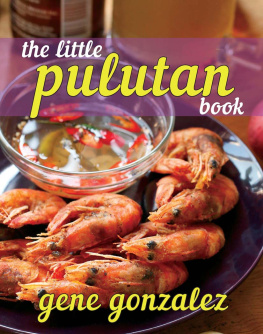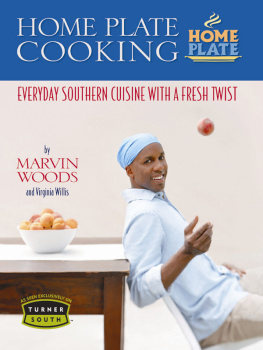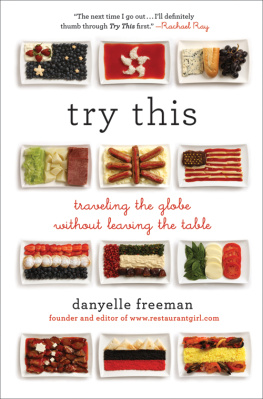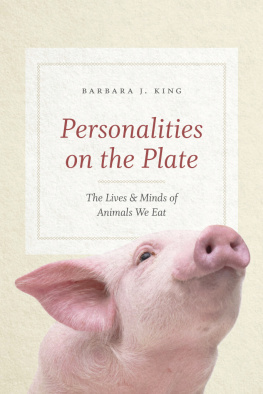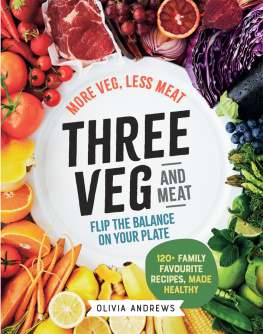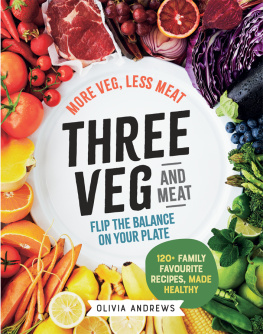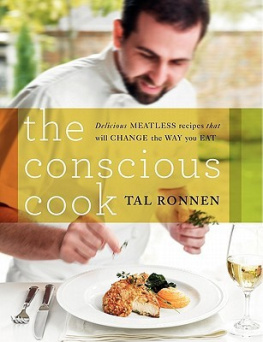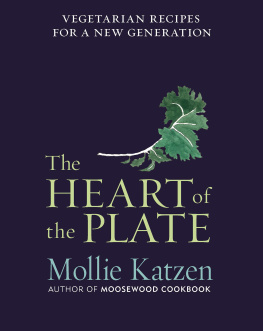PENGUIN BOOKS
THE THIRD PLATE
Dan Barber is the chef and co-owner of Blue Hill, a restaurant in Manhattans West Village, and Blue Hill at Stone Barns, located within the nonprofit farm and education center Stone Barns Center for Food & Agriculture. He lives in New York City with his wife and daughter.
Praise for Dan Barbers The Third Plate
Dan Barbers tales are engaging, funny, and delicious.... The Third Plate invites inevitable comparisons with Michael Pollans The Omnivores Dilemma, which Barber invokes more than once. And, indeed, its framework of a foodie seeking truth through visits with sages and personal experiments echoes Pollans landmark tome.... But at the risk of heresy, I would call this The Omnivores Dilemma 2.0... The Third Plate serves as a brilliant culinary manifesto with a message as obvious as it is overlooked. Promote, grow, and eat a diet thats in harmony with the earth, and the earth will reward you for it. Its an inspiring message that could truly help save our water, air, and land before its too late.
Chicago Tribune
Not since Michael Pollan has such a powerful storyteller emerged to reform American food.... Barber is helping to write a recipe for the sustainable production of gratifying food.
The Washington Post
Compelling... The Third Plate reimagines American farm culture not as a romantic return to simpler times, but as a smart, modern version of it.... The Third Plate is fun to read, a lively mix of food history, environmental philosophy, and restaurant lore.... An important and exciting addition to the sustainability discussion.
The Wall Street Journal
There hasnt been a call-to-action book with the potential to change the way we eat since Michael Pollans 2006 release, The Omnivores Dilemma. Now there is. Dan Barbers The Third Plate: Field Notes on the Future of Food is a compelling global journey in search of a new understanding about how to build a more sustainable food system.... The Third Plate is an argument for good rather than an argument against bad. This recipe might at times be challenging, but whats served in the end is a dish for a better future.... Barber writes a food manifesto for the ages.
Pittsburgh Post-Gazette
Not long ago, Dan Barber, the chef and a co-owner of Blue Hill in Manhattan, and the animating force behind the Stone Barns Center for Food and Agriculture in Westchester County, came up with a dish he calls Rotation Risotto. Its a manifesto on a plate, a tricky play on the Italian classic that uses, instead of rice, a medley of lesser-known grains: rye, barley, buckwheat, and millet.... Taken together, they argue for a new way of thinking about the production and consumption of food, a whole farm approach that Mr. Barber explores, eloquently and zestfully, in The Third Plate: Field Notes on the Future of Food.
The New York Times
When The Omnivores Dilemma, Michael Pollans now-classic 2006 work, questioned the logic of our nations food system, local and organic werent ubiquitous the way they are today. Embracing Pollans iconoclasm, but applying it to the updated food landscape of 2014, The Third Plate reconsiders fundamental assumptions of the movement Pollans book helped to spark. In four sectionsSoil, Land, Sea, and SeedThe Third Plate outlines how his pursuit of intense flavor repeatedly forced him to look beyond individual ingredients at a regions broader storyand demonstrates how land, communities, and taste benefit when ecology informs the way we source, cook, and eat.
The Atlantic
Barbers work is a deeply thoughtful andoffering a menu for 2050even visionary work for a sustainable food chain.
Publishers Weekly
In this bold and impassioned analysis, Barber insists that chefs have the power to transform American cuisine to achieve a sustainable and nutritious future.
Kirkus Reviews
Often, books about sustainability and Americas food system are depressing and difficult to get throughbut I should have realized I was in better hands. Somewhere in the first section, during a discussion about the structure of soil, I realized that I was completely engrossed. From that point on, it was a fight to read more slowly; I didnt want this book to end.... The Third Plate is impeccably researched, well written, and achieves its aim: to make us reconsider not only what we want to put on our plates, but how it got there in the first place.
Saveur
Dan Barber nails it... Here in this monumental time in the history of food in our country, Barber takes off the gloves and digs deep, providing a subterranean view of the movement from (beneath) the ground up. Starting at the roots, he simplifies the often complex kaleidoscope of historical food regions, players, trends, ingredients, influences, and philosophies, and then paints a broad-stroke picture of neo-American cuisine using a fine-point brush. From the dynamic and unique perspective of a chef on a farm, who was initially on the hunt for better flavor, Barber carefully plots a Sherlock Holmesstyle story line at times filled with clues, discoveries, and a-ha revelations.... To gain an educated, informed, and candid perspective on what the American dinner table should begin to look like as the peaceful era of farm-to-table dining dies on the vine, The Third Plate: Field Notes on the Future of Food, is a must-read.
Edible Magazine
In The Third Plate, Barber turns his chefs eye towards food: namely, the question of what well be eating in the future, taking into consideration changes in environment, supply and demand, and the way that we consume food.... Its a bit like The Omnivores Dilemma as imagined by a chef curious about the future of food in his industry.... The Third Plate is a provocative look at how farm to table cooking is sort of a beautiful fantasy, and suggests that to really eat and get food from the earth, were going to have to change our ways.
Flavorwire
Dan Barbers new book, The Third Plate, is an eloquent and thoughtful look at the current state of our nations food system and how it must evolve. Barbers wide range of experiences, both in and out of the kitchen, provide him with a rare perspective on this pressing issue. A must-read.
Vice President Al Gore
In this compelling read Dan Barber asks questions that nobody else has raised about what it means to be a chef, the nature of taste, and what sustainable really means. He challenges everything you think you know about food; it will change the way you eat. If I could give every cook just one book, this would be the one.
Ruth Reichl, author of Garlic and Sapphires and Tender at the Bone
Dan Barber is not only a great chef, hes also a fine writer. His vision of a new food systembased on diversity, complexity, and a reverence for natureisnt utopian. Its essential.
Eric Schlosser, author of Fast Food Nation and Command and Control
I thought it would be impossible for Dan Barber to be as interesting on the page as he is on the plate. I was wrong.
Malcolm Gladwell, author of David and Goliath and The Tipping Point
Heres a welcome addition to any library. Dan Barber, justifiably renowned chef of Blue Hill in New York City and at Stone Barns and its farm in Westchester, writes as well as he cooksand thats very well indeed.
Marion Nestle, author of Food Politics
After my first meal at Blue Hill, I paid Dan the ultimate farmer compliment. I told him that he made vegetables taste almost fresher after he had prepared them than when the farmer harvested them. Now I am equally impressed with his writing. Food has stories and Dan tells the stories as well as he cooks. If you want to know about food, read this book.
Next page
